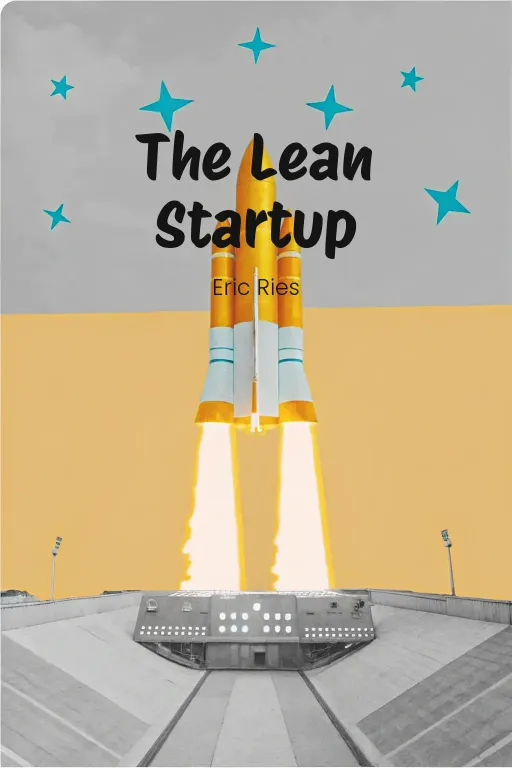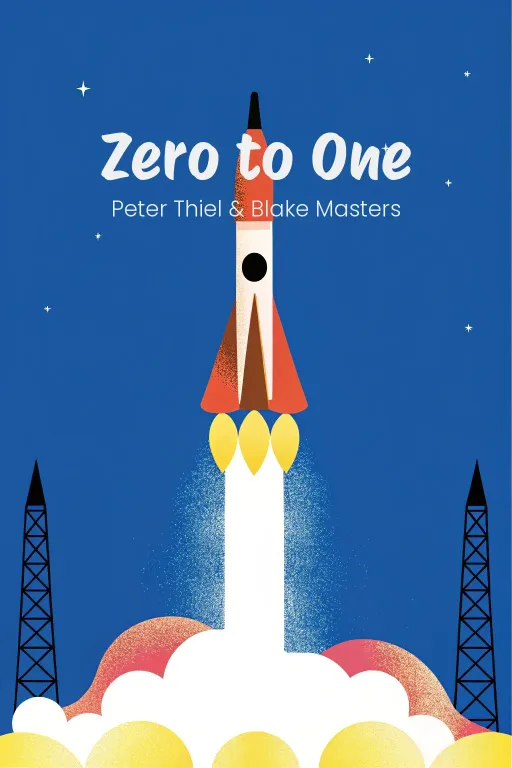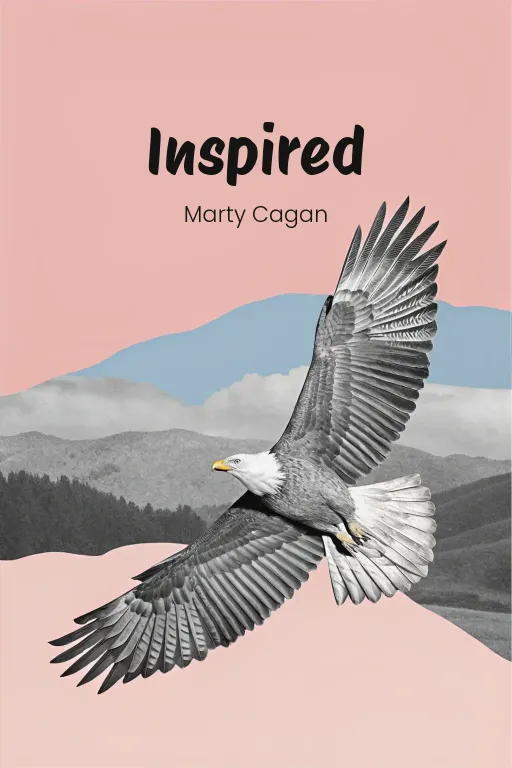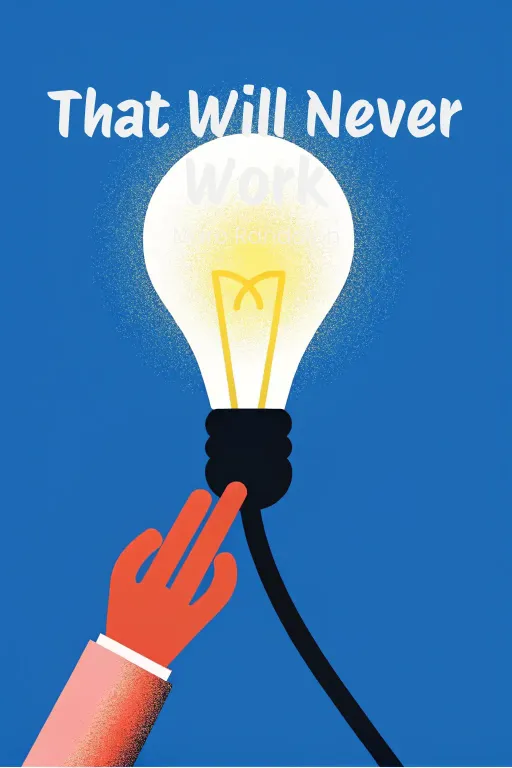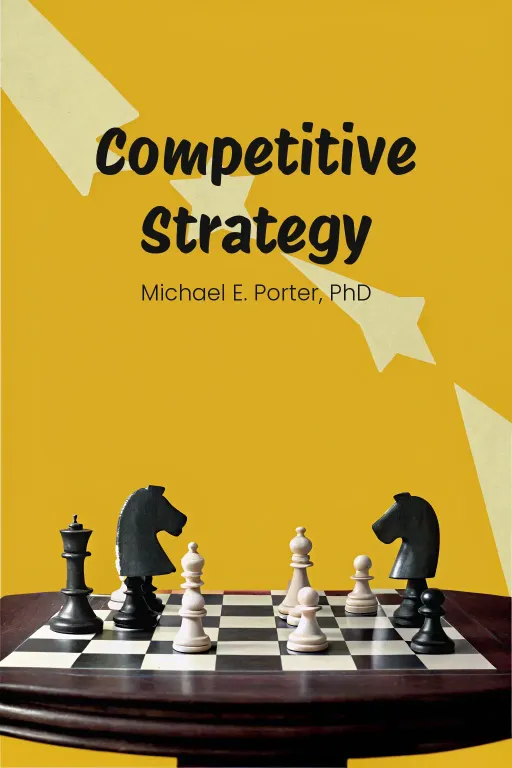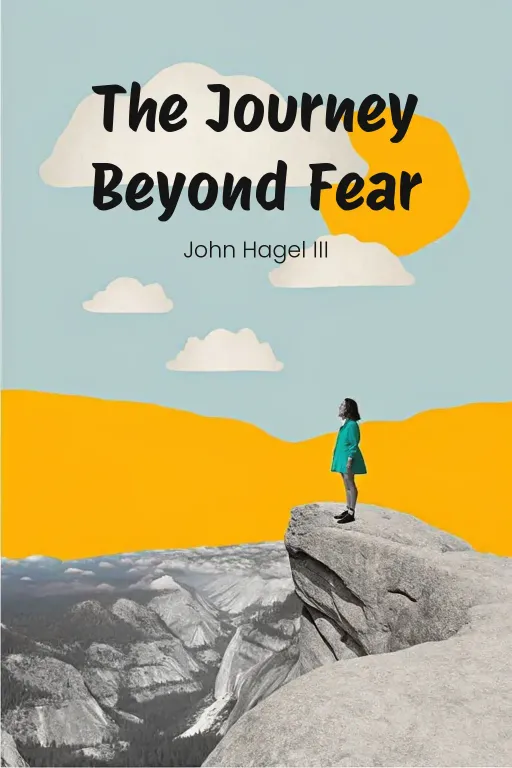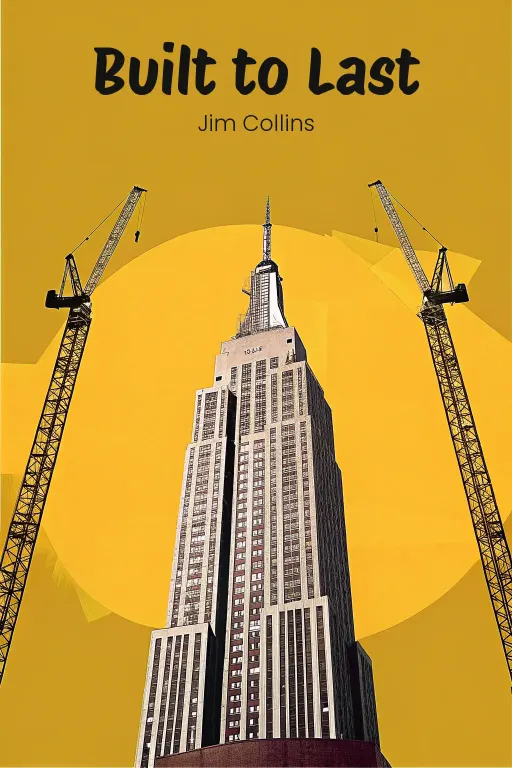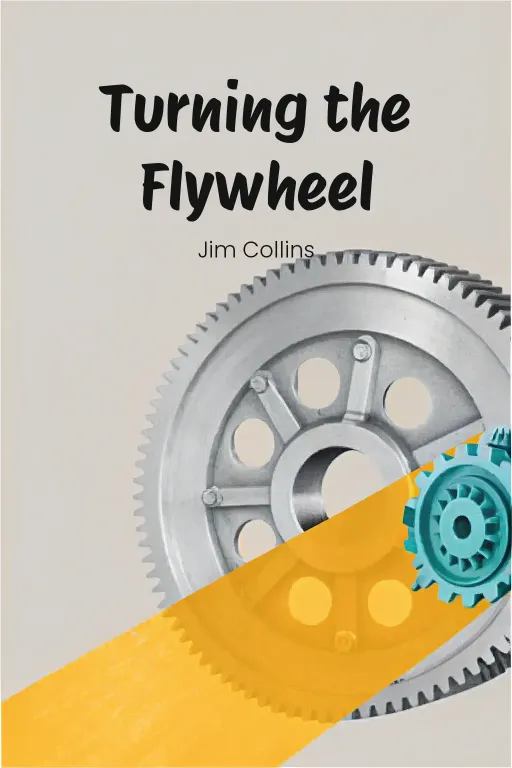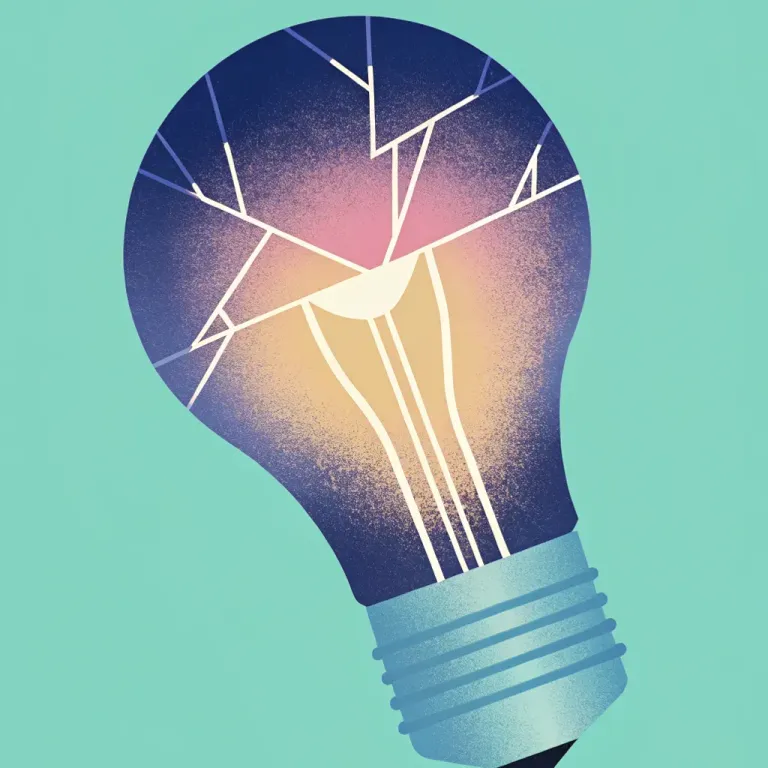
Idea to Empire: The Netflix Way
Podcast by Let's Talk Money with Sophia and Daniel
The Birth of Netflix and the Amazing Life of an Idea
Idea to Empire: The Netflix Way
Part 1
Daniel: Hey everyone, welcome back to the show! Ever had a brilliant idea, only to have someone immediately shoot it down with a dismissive, “That will never work”? You know, maybe it was a business idea, a career change, or just something you were really excited to try, but the doubters just wouldn't let up. Well, today we're talking about proving those people wrong. Sophia: Ah, the classic underdog story. But I'm guessing there's more to it than just simple resilience here, Daniel, right? Daniel: You know me too well, Sophia. Today we're diving into That Will Never Work by Sophia Randolph. It's basically the origin story of Netflix—yes, that Netflix—back when it was just a small idea to rent DVDs through the mail. Sophia: DVDs by mail! Wow, that feels like ages ago now, doesn't it? Back then, it wasn't just about stuffing discs into envelopes. It was about taking big risks, quickly adapting when things didn't work, and really betting on something that, at the time, seemed truly impossible. Daniel: Precisely. Randolph's book really captures that whole rollercoaster ride—the early investor rejections, the uphill battle against giants like Blockbuster and even making the tough call about shifting from individual sales to a subscription model. It's really as much a story about sheer hard work and never giving up as it is about innovation. Sophia: And let's not forget the people involved! That's what makes this story so interesting, right? From Randolph's relationship with his co-founder Reed Hastings—a mix of collaboration and sometimes, you know, friction—to how the whole team creatively navigated all the setbacks. If anything, this book is a good reminder that big ideas are kind of messy when they're coming together. Daniel: Definitely. And that's why we've focused our discussion today around three core themes. First, the pure grit and adaptability needed to survive the ups and downs of startup life. Second, the super important of teamwork and team dynamics - because Netflix definitely wasn't built by just one person. And third, the clear vision and daring innovation that took a simple DVD rental idea and turned it into a revolution. Sophia: Grit, teamwork, and innovation. Sounds like a recipe for either amazing success—or maybe total chaos, depending on your perspective. Daniel: Exactly, Sophia, and that's what we're here to discuss. So, buckle up, because this isn't just a business story, it's really a human story, with some valuable lessons that we can all learn from.
Entrepreneurial Resilience and Adaptability
Part 2
Daniel: So, where were we? Right, let's dig into what makes entrepreneurship this incredible test of resilience and adaptability. I mean, look at Sophia Randolph and his team, they faced rejection from the get-go, right? Investors calling their idea “impractical,” even “shit.” But instead of collapsing, they used that feedback to fine-tune things. Isn't that what entrepreneurial grit is all about? Sophia: Totally. But here’s a thought, Daniel… Do you reckon all those rejections were a blessing in disguise? It's easy to romanticize rejection as some kind of badge of honor, but imagine how draining it must have been for Randolph and his crew back then. Daniel: Oh, draining for sure, but also incredibly insightful. Take the subscription model, for instance. That shift wasn't some lightbulb moment over lattes in Silicon Valley. It came from really listening to customers complaining about late fees and realizing their original pay-per-use model just wasn't going to cut it. Sophia: Ah, yes! Late fees, the bane of every Blockbuster visit back in the 90s. Netflix, the consumer's savior! But isn't it fascinating that the move to subscriptions wasn't this grand strategy from day one? It was more like, “Uh oh, this isn't working. What's next?" Daniel: Exactly! Shows how adaptability fuels resilience. And let’s not forget them testing their initial idea. Imagine Randolph and Hastings mailing themselves a CD just to see if it could survive the postal system! And when it did? Boom! Proof of concept, however small. Sophia: Right. Mailing a CD sounds so basic, but here’s what intrigues me – the humility to start so small. They didn't blow millions on infrastructure upfront; they tested the simplest version. Textbook MVP, right there. Daniel: Absolutely. That story's not just funny; it's strategic. And it reflects Randolph’s belief in constant experimentation, even with ideas that might sound, well, ridiculous. Surfboards? Customized baseball bats? Laughable now, maybe, but it shows a culture that’s not afraid to fail. Sophia: Talking of laughable ideas, isn’t market timing key too? DVDs were the perfect medium – light, durable, shippable. Imagine if Netflix had tried this five years earlier with those clunky VHS tapes! Logistical nightmare all around. Daniel: True. Spotting those market shifts, like VHS to DVD, was vital. But they didn't just see it coming; they pounced on it. DVDs weren’t just lighter; they were a cheaper transportation option. The solution to both the technical and cost problems in the system. Sophia: And resilience meets foresight, I think. Seeing where the puck's headed, as they say. But Daniel, let's pause. Dealing with the logistics of that early demand must have been a nightmare, right? Daniel: Absolutely. Randolph paints such a vivid picture of the chaos. Predicting inventory demands in the early days, without data analytics? It was like solving a Rubik’s Cube blindfolded. But instead of giving up, they doubled down on fixing those operational headaches. Sophia: And those early data struggles eventually led to Cinematch, which, of course, morphed into that crazy sophisticated recommendation system. Chaos taught them the value of consumer data before it became the lifeblood of their business. Daniel: Exactly! It’s such a powerful lesson in how embracing challenges, not avoiding them, can lead to transformative results. But let's zoom out. Resilience also depended on culture. Randolph deliberately fostered an environment where failures were seen as learning opportunities. Sophia: Interesting point, Daniel. Randolph mentions his time at Borland… remember the hot tub era? Perks everywhere, but no real connection or purpose among employees. At Netflix, though, it wasn't about fancy offices; it was about empowering people to contribute and be accountable. Daniel: That culture of responsibility made all the difference. Employees weren’t paralyzed by fear of failure because risks were seen as part of the process. And that shared sense of mission? It created resilience at a team level, not just individually. Sophia: Right – Randolph’s leadership wasn’t about coddling. It was about giving the team the mindset they needed to adapt under pressure. A company like Netflix couldn’t have survived its growing pains without that foundation. Daniel: Which brings us to the big lesson here: entrepreneurial resilience isn’t just about weathering setbacks; it’s about thriving because of them. Netflix didn’t just bounce back when things went wrong; it redefined its business model, logistics, and even its culture to overcome those challenges. Sophia: And that, my friend, is why Netflix went from "That will never work" to being a household name. It's a masterclass in adapting to change, not just surviving it—but owning it.
Collaboration and Teamwork
Part 3
Daniel: So, this adaptability wasn't just about survival; it was about winning in a tough game. And that leads us to our next point: teamwork. Sophia, we've highlighted how crucial resilience was for Netflix, but isn't it amazing how much their team and leadership were behind that resilience? Sophia: It really is. You know, you can have the most adaptable entrepreneur, but let's be real—no company is built alone. Netflix “really” proves this, especially when you see how Sophia Randolph and Reed Hastings worked together. Daniel: Exactly! They're such a great example of contrasting styles. Randolph was the creative one, always with a million ideas. Hastings was more methodical, practical, and honestly, a bit skeptical. Sophia: Yeah, like that famous story where Randolph pitched the idea of selling custom baseball bats to Hastings during a carpool. Hastings just shot it down, saying straight up, "That will never work." I mean, how many partnerships can handle that kind of bluntness? Daniel: Not many! But that's what made them special. It wasn't just about rejecting ideas; it was about making them better. Randolph had an endless stream of ideas, some good, some not so good, and Hastings knew how to sort through them using a critical, but constructive, eye. It wasn't always easy, but their different strengths turned disagreements into progress. Sophia: You know, it's like the "yin and yang." Randolph was pushing the limits with his creativity, while Hastings kept the business grounded with strategy. That tension, that productive tension, is what pushed Netflix to aim higher. Daniel: Totally! Take their move to a subscription model. It wasn't just Randolph's idea or Hastings' idea alone. It came from their constant back-and-forth. Randolph saw people were annoyed with late fees, and Hastings pushed for a solution that could grow. It “really” shows that innovation happens when you work together, not by yourself. Sophia: But it wasn't just those two, right? The team they built was super important. When Randolph talks about the early days of Netflix, you feel this sense of camaraderie, this openness to ideas and even failure. And, you gotta love those quirky team-building things they did, like making new people dress up as their favorite movie characters. Talk about breaking the ice! Daniel: Exactly! Those things might seem silly, but they made people feel like they were a part of something, not just employees. When they faced those crisis moments, like their launch day server crashes, they weren't just coworkers trying to fix things. They were a team, ready to work together under pressure. Sophia: Ah yes, launch day. April 14, 1998. Servers crashing everywhere, total chaos. Isn't that every startup founder's worst nightmare? Daniel: It is, Sophia. But the impressive thing was how the team reacted. Instead of blaming each other or giving up, they worked together—engineers, developers, everyone pitching in to fix the platform. It was teamwork at its finest. Sophia: And think about the leadership then. Randolph and Hastings didn't try to control everything. They trusted their team, which says a lot about the culture they were creating—one where people felt empowered to take charge. Daniel: Exactly. And that open, collaborative structure, where everyone's input mattered, became a huge strength for Netflix. It wasn't just about fixing servers; it was about creating a strong, united culture that could handle anything. Sophia: And it wasn't just during crises. That attitude carried over to everything they did. You saw it in how they gave feedback—open, honest, sometimes brutally so—but always focused on making things better. No egos, no fear of messing up, just a shared goal pushing them forward. Daniel: And Sophia, let's remember the big picture here: the power of finding the right partners and building trust. Randolph's energy balanced perfectly with Hastings' practicality. And their team? They thrived because they were free to innovate and make mistakes without fear. Sophia: Which is kind of funny, isn't it? A company built on making things easier for its customers—no late fees, no stores—was itself built by breaking down barriers within its own team. No strict rules, no fear of taking risks. Daniel: Exactly. And that's why Netflix wasn't just a business; it was a movement. By encouraging collaboration and trusting their people, they didn't just survive; they actually thrived. Sophia: And that’s the lesson for all of us, right? Collaboration isn’t just a nice thing to have. It’s what drives innovation and keeps teams together when things get tough. Daniel: Absolutely. Netflix's story proves that while a great idea might start with one person, it takes a whole team—a resilient, fearless, collaborative team—to “really” bring it to life.
Vision and Innovation
Part 4
Daniel: So, beyond the internal stuff, their external vision and long-term strategy were key, which brings us to vision and innovation. This “really” wraps up our discussion, moving us from daily challenges and teamwork to the larger impact of visionary leadership and innovative thinking. I find it fascinating how Netflix didn't just adapt; they anticipated changes and, you know, in many ways, shaped them. Sophia: Exactly. What gets me is how Randolph and Hastings looked beyond the obvious. They seemed to zoom out and align their strategies with where the world was going. Take the DVD decision for their mail service. Sounds simple enough, but Daniel, why was that actually visionary? Daniel: Right, DVDs were just becoming popular back in the late 90s. The industry was moving away from VHS, but the big rental chains, like Blockbuster, were still all about their brick-and-mortar stores and VHS tapes. But Randolph and Hastings realized that DVDs weren't just the future; they were perfect for mail-order. They were lightweight, compact, and less likely to get damaged in shipping. It was a smart bet on new tech that put Netflix way ahead. Sophia: So, while everyone else was dealing with those bulky VHS tapes that broke if you looked at them wrong, Netflix was mailing virtually indestructible discs. Logistically, it was genius. But was it just good timing, or did it take real foresight to bet on DVDs when they were still pretty new? Daniel: Definitely foresight. They didn't just jump in blindly; they tested their idea. Remember the story about them mailing a CD in a regular envelope to see if it would survive? That simple test proved their concept. It shows their culture of testing, even for, what might seem like, small decisions. Sophia: Right, these tech visionaries basically running a middle school science experiment with the post office. But that’s the beauty of it, isn’t it? No need for fancy models or big disruption speeches. Sometimes, the most groundbreaking stuff starts with the simplest tests. Daniel: Exactly! And that carried them into the streaming era. In the early 2000s, broadband internet was just starting out, and streaming movies seemed kind of crazy, honestly. But Netflix saw the potential of high-speed internet and that physical media would eventually disappear. Sophia: Of course, back then, it wasn’t such an obvious move. I mean, remember Napster and the mess it caused for the music industry? Studios were terrified of digital movies, thinking everything would get pirated. So, negotiating digital rights for streaming? Must’ve seemed impossible. Daniel: Oh, it was. The studios were super skeptical. Randolph talks about these tense meetings where executives doubted Netflix's tech and their ability to stop piracy. Getting those early digital partnerships took a lot of patience and selling a vision most people couldn't see. Sophia: So, Randolph and Hastings had to convince these studios to trust their little DVD company to become a digital streaming platform, while the studios were imagining illegal downloads everywhere. The audacity is pretty incredible. Daniel: Totally. But Netflix's persistence shows their belief in streaming as the future of home entertainment. And they didn't just believe it; they built their whole system around it. They invested in broadband compatibility and user-friendly interfaces to create a great streaming experience early on. Sophia: Which definitely paid off. And we can’t forget about technological innovations like Cinematch, their personalized recommendation engine. That was a game-changer, right? Daniel: Oh, absolutely. Before Cinematch, Netflix knew customers struggled to pick movies from their huge catalog. Just offering a ton of titles wasn't enough; they needed to make it easy for people to find what they'd want to watch. Cinematch was the solution, an algorithm that used customer data to suggest titles based on individual preferences. It wasn't just a feature; it was a way to keep customers engaged and coming back. Sophia: When you think about it, it's amazing. They didn't just solve a practical problem; they saw a behavioral shift coming. As more people went digital, choice overload became a real issue. Cinematch didn't just help users; it showed the industry how tailored experiences could change how consumers interact with everything. Daniel: Exactly, and if you look at how it's evolved, Cinematch laid the foundation for how Netflix approaches content now, using data analytics to recommend titles and guide original programming decisions. It all goes back to this constant cycle of experimentation and iteration. Sophia: Speaking of experimentation, what about their subscription model? I mean, Netflix essentially said, “Goodbye late fees, hello unlimited rentals.” That single shift didn’t just challenge Blockbuster; it destroyed the whole video rental thing. Daniel: It did. What's great about that transition is how directly it addressed a pain point. Late fees were universally hated. Netflix saw a chance to not just compete with Blockbuster but to change the whole game—a flat monthly fee for unlimited access. That model also translated well into their streaming framework, making the move to digital distribution much easier. Sophia: So, in a way, their vision wasn't just about innovating the format – DVDs versus streaming – but about reimagining the customer/provider relationship. They weren’t just selling movies, they were selling convenience, accessibility, even freedom. Daniel: Exactly, Sophia, and that's why Netflix's story is so profound. It's not just about being first to market or having the best tech. It's about combining vision with execution, experimenting constantly, and always focusing on the consumer's changing needs when it comes to innovation. Sophia: I couldn’t agree more. Daniel, this journey—from mail-order DVDs to streaming juggernaut—proves that visionaries aren’t just those who see the future. They’re the ones who build it, experiment by experiment.
Conclusion
Part 5
Daniel: Wow, what a story we unpacked today! From Netflix's humble start sending DVDs in the mail to becoming a global streaming giant, it really shows how resilience, teamwork, and a clear vision set them up for success. Sophia Randolph's journey isn't just about a brilliant idea, is it? It's about pushing through the “no's,” staying humble enough to try new things, and knowing when to change course. Sophia: Exactly! And you can't ignore the human element. Randolph and Hastings, they were the perfect example of a complementary partnership, right? That productive tension they had, that was crucial for navigating the startup chaos. Mix that with a company culture that saw failure as a learning opportunity, not a dead end, and you've got a recipe for adaptability and growth. Daniel: Totally, Sophia. What really struck me was how Netflix wasn’t just reacting to the future, they were actively creating it. Whether it was using data to improve user experience, betting on emerging tech like DVDs and broadband, or launching that game-changing subscription model – it was all about matching innovation with what consumers wanted. Sophia: And that's the big lesson, I think. Innovation isn't some magical thing that just happens. It comes from being curious, testing things deliberately, and being ready to ditch the old ways. Netflix didn’t just see problems; they saw opportunities in them. Daniel: So, to our listeners, here’s our question for you: What's that one idea, goal, or challenge in your life that everyone says "will never work?" Looking at Netflix’s story, how could you rethink failure or rejection and see it as a stepping stone to something bigger? Sophia: Right, because if Netflix proves anything, it's that “impossible” is just a dare to prove everyone wrong. Keep dreaming, keep experimenting, and most importantly, keep building. Daniel: Precisely! Thanks for joining us as we dove deep into “That Will Never Work”. Until next time, stay inspired, stay resilient, and don’t let anyone tell you that your vision will never work. Sophia: Catch you later, everyone!
